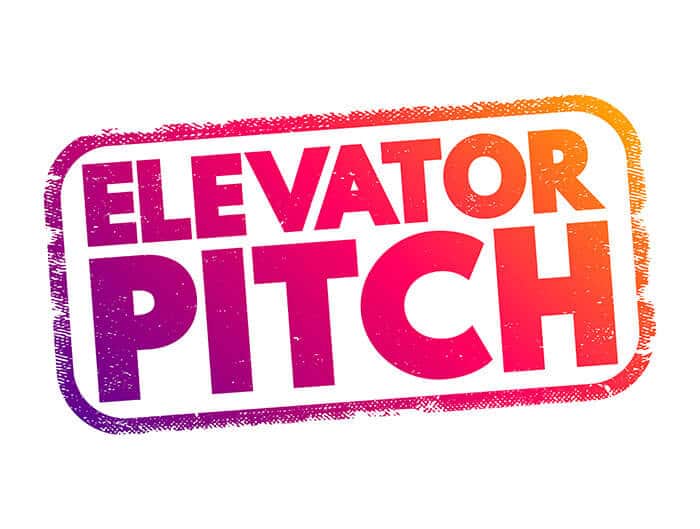
Elevator pitching is a concise and persuasive speech that is delivered in the time it takes to ride an elevator. It is typically used to present an idea, product, or service to a potential investor or customer in a brief and compelling manner. The goal of an elevator pitch is to grab the listener’s attention and leave a lasting impression, while also providing enough information to generate interest and prompt further discussion. It is important to keep the pitch clear, concise, and engaging, highlighting the unique value proposition and benefits of the idea, product, or service.
You can use elevator pitching in a variety of settings, such as:
- Networking events: When you meet someone new, you can use an elevator pitch to introduce yourself and your business or idea.
- Job interviews: An elevator pitch can help you sell yourself to a potential employer by highlighting your skills and experience.
- Sales meetings: If you’re trying to sell a product or service, an elevator pitch can help you make a strong first impression and convince the client of the value of your offering.
- Startup pitches: When pitching your startup to investors, an elevator pitch can help you quickly and effectively convey your business idea and its potential.
- Conferences and events: If you’re attending a conference or event, you can use an elevator pitch to introduce yourself to other attendees and make meaningful connections.
Overall, elevator pitching can be a powerful tool to communicate your message and generate interest in your idea, product, or service.
How to Write an Elevator Pitch
- Keep it concise: An elevator pitch should be no longer than 30-60 seconds. You should focus on the most important information and avoid unnecessary details.
- Identify your unique value proposition: Your elevator pitch should clearly communicate what makes you or your idea, product, or service unique and valuable. This will help you stand out from the competition.
- Know your audience: Tailor your elevator pitch to the person or group you are speaking to. This will help you connect with them and make your pitch more persuasive.
- Practice, practice, practice: Rehearse your elevator pitch until you can deliver it smoothly and confidently. This will help you make a strong impression and leave a lasting impact.
- Include a call to action: End your elevator pitch with a clear call to action, such as asking for a meeting or follow-up conversation. This will help you move the conversation forward and create opportunities for further engagement. Explain What does your company do exceptionally well in your elevator pitch.
In an elevator pitch, it’s important to highlight what makes your company unique and what it does exceptionally well.
An elevator pitch highlights the company’s unique value proposition and strengths, while also providing a clear call to action for further engagement. By focusing on what the company does exceptionally well, you can make a strong impression and generate interest in your product or service.
By following these tips, you can create an effective elevator pitch that will help you communicate your message and generate interest in your idea, product, or service.
